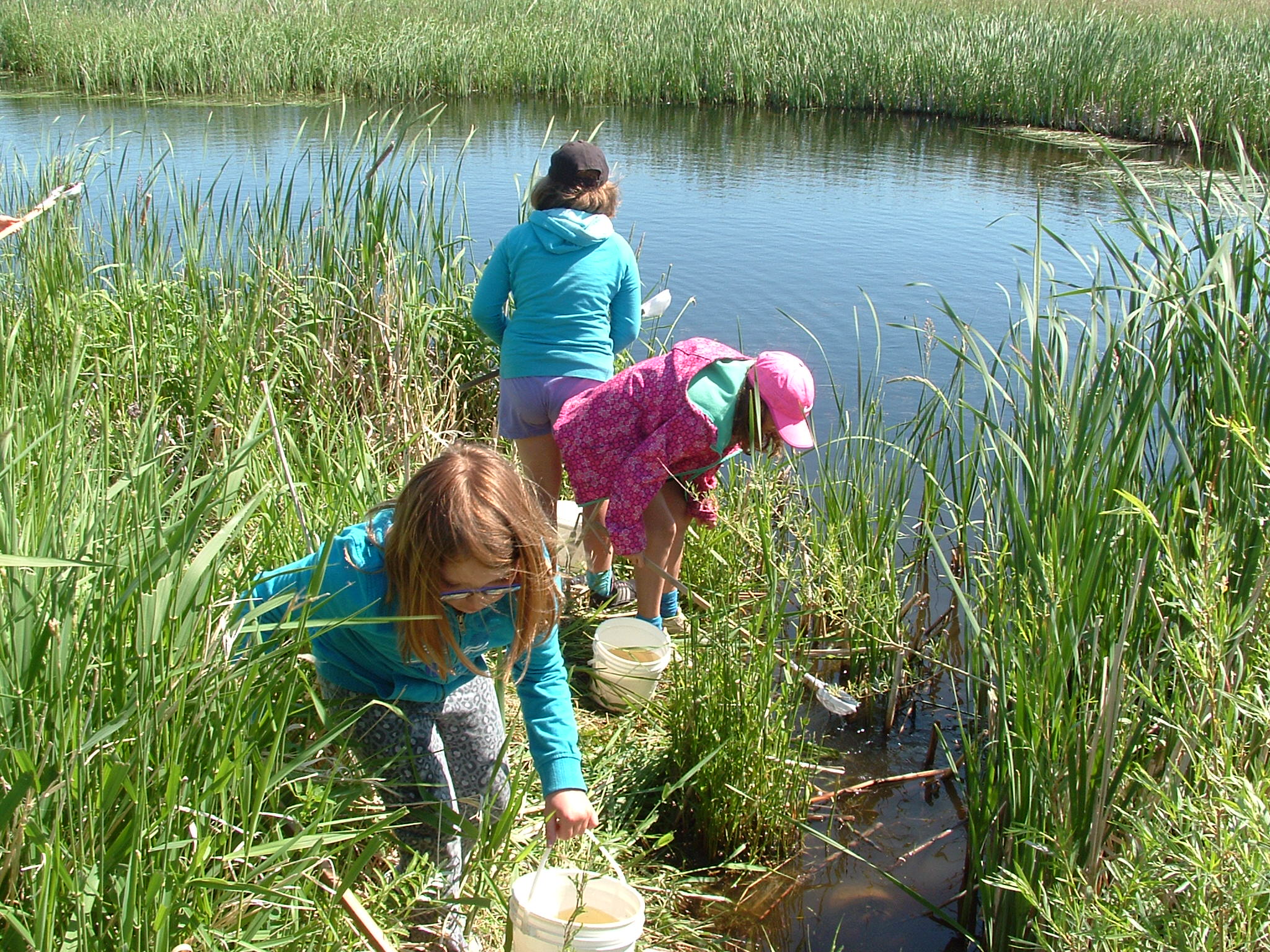Out of the classroom, into the Manitoba marsh
Lizard Lake wetland enhancement offers greater wetland education and conservation opportunities

It starts with critter dipping. It eventually leads to critter loving . . . and critter protecting.
“We caught a bunch of snails and side swimmers and shrimps,” says one Grade 4 student. “We’ve been learning all kinds of things about wetlands, and ducks, plants and animals in the water. It’s really cool.”
DUC has had a presence in wetland conservation at Lizard Lake, Man., since 1985. In this corner of southwestern Manitoba, the Oak Hammock Marsh Interpretive Centre brings in educators and students from the region, while the Project Webfoot program takes elementary school kids outside.
“These programs get kids out of the classrooms and right into the marsh with some critter dipping. They’ll dip their nets into the water and see that it’s teeming with life. The kids leave with a better appreciation for wetlands, for wild areas,” says Shaun Greer, DUC’s head of habitat asset management.
“We need to preserve these wetland areas. But we also need to give kids and the public the opportunity to experience it,” says Rick Andrews, DUC’s manager of provincial operations. “Once you appreciate and love something, you protect it.”
The Lizard Lake project is a conservation partnership between DUC, the Rural Municipalities of Thompson and Pembina and the Pembina Valley Conservation District, among others. Project upgrades have been supported through a $100,000 donation by Enbridge, who is also a long-standing sponsor of educational initiatives like Project Webfoot.
“We’re committed to being a responsible and considerate neighbour,” says Lorna St. Thomas, Enbridge’s Edmonton-based manager of community investment. “We deliver on that promise by investing in initiatives like Lizard Lake—initiatives that make these communities better places to live.”

©DUC
Located between Miami and Manitou, Lizard Lake is one of DUC’s largest wetland conservation areas in Manitoba—with a 580-acre lake and an additional 1,500-acre backflood area. For more than 30 years, that backflood area has offered early-season habitat for waterfowl, hay for landowners and local cattle producers, and environmental benefits such as carbon storage and filtration of excess nutrients.
“Ducks Unlimited Canada works primarily on private land. So we look for a win-win situation, where we can provide a nesting habitat and a benefit to a private landowner,” says Andrews. “At the same time, the Lizard Lake project has a greater impact. It limits erosion, provides flood attenuation and reduces the nutrient load in the watershed all the way to Lake Winnipeg.”



